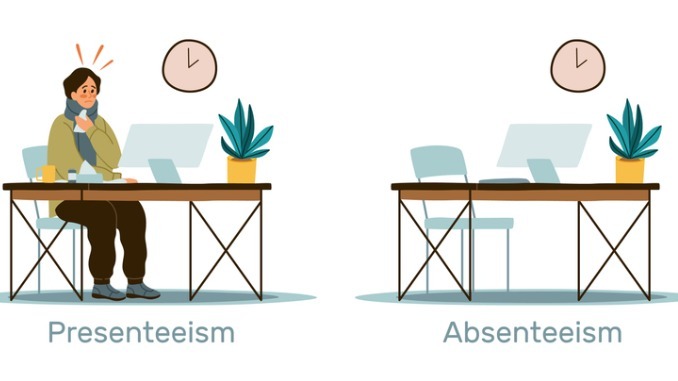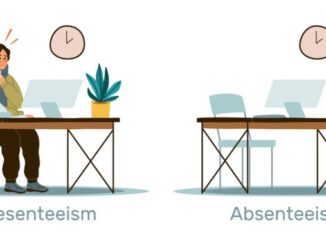When it comes to absence management, the phenomenon of presenteeism—where employees work despite being ill—poses significant challenges to both public health and organisational productivity
CREDIT: This is an edited version of an article that originally appeared on Business News Daily
Everyone gets sick occasionally, but many employees feel compelled to work even when they’re unwell. This can stem from anxiety about taking time off, fear of accumulating unfinished tasks, or a desire to prevent burdening their colleagues. This phenomenon, known as “presenteeism,” poses significant public health risks and incurs substantial costs.
Understanding the problem
Presenteeism might not seem like a major issue, but it is more prevalent than one might think. A survey of 6,600 workers found that 65% of respondents reported working while they were ill.
No matter how well-intentioned, coming to work while sick is both reckless and costly. Research shows that a single worker can contaminate over 50% of commonly touched surfaces in an area within just two to four hours. In the close quarters of an office, illnesses can spread rapidly. For small businesses, the escalating costs of presenteeism can significantly jeopardize operational continuity. It’s crucial for businesses to take proactive measures to prevent presenteeism before it becomes a major issue.
Prevention
Creating a workplace culture that prioritizes a healthy work-life balance is essential. Employees should understand that they are encouraged to take time off when needed, relieving highly motivated workers of any guilt they might feel for taking sick days.
For instance, some employees feel compelled to work even when they’re sick because they have a heavy workload. Given the choice between letting tasks accumulate or passing work to a colleague, many opt to forgo taking a sick day. While this dedication is commendable, presenteeism is not. To address the fear of unfinished work, businesses should ensure adequate staffing so that there are enough team members to cover for anyone who calls in sick.
Remote working
When employees feel sick but still want to work, there’s often no need for them to come into the office and risk spreading germs. With remote work now a standard part of many business models, leveraging technology can help maintain better social distancing practices. Since many organisations adopted remote work during COVID-19, it makes perfect sense to continue this practice to prevent presenteeism.
Employee support
Making it clear that management supports and encourages employees to take time off until they recover can significantly prevent presenteeism. Many workers worry about how their managers and leadership teams will perceive their absence, so regular reassurance and embedding time off into the workplace culture are essential.
Even with the best intentions, an employee coming to work sick can be counterproductive and potentially hazardous. Provide workers with the space and resources to recover at home, whether they are working remotely or taking the time to rest and heal.
By promoting a healthy work-life balance, implementing remote work options, and fostering an environment where taking time off is encouraged and supported, businesses can mitigate the risks associated with presenteeism. Moreover, by recognising the potential consequences of employees working while sick and providing the necessary resources for recovery, companies can safeguard both the well-being of their workforce and overall productivity.



Be the first to comment